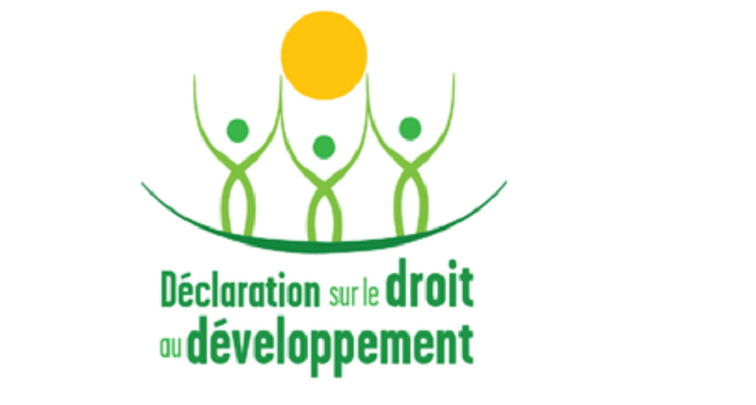CETIM’s statements at the UN

We are providing a summary of the oral and written statements provided by CETIM during the 51st session of the Human Rights Council (September-October 2022).
Continue readingInequalities within countries and between so-called developed and developing countries continue to grow. According to the Global Inequality Report 2022 : “The richest 10% of the world’s population earn 52% of global income, while the poorest half earn only 8%. And an individual in the top 10% of income earns an average of 87,200 euros a year, while those in the bottom 50% earn 2,800 euros. Inequalities in wealth are even more pronounced than in income. The poorest half of the world’s population has virtually no wealth, owning just 2% of the total. Conversely, the richest 10% own 76% of it “.1
In fact, the catastrophic spread of these inequalities and consequent poverty on a global scale makes it imperative to implement and promote the right to development.
What is it ? Which right and which development are we referring to?
The Declaration on the Right to Development (DRD) was adopted by the United Nations General Assembly in 1986. It results from efforts of the Non Aligned Movement to establish a fairer and more equitable New International Economic Order. The DRD opposes the dominant ideology in which economic growth is the primary objective of development.
On the contrary, the DRD asserts that the human person – individually and above all, collectively – is at the heart of all activity not only economic but also social, political and cultural. In this sense, it must be the central subject and not merely the object, of a development process that is based on people’s active, free and meaningful participation.
The objective of the Right to Development is to achieve self-determination and sovereignty of peoples regarding their choice of development model, in a spirit of equality and mutual respect. The Right to Development also implies that the benefits of development be distributed equitably. The DRD postulates that all States, individually and collectively, adopt as a priority, the realization of all human rights (civil, political, economic, social and cultural). After tough negotiations over the wording of the text, a number of powerful Northern states tried to scrap it, to soften it and even to misrepresent its content. Constantly attacked by these states, the DRD has never been implemented. It directly opposes current political policies, in particular those of the International Monetary Fund, the World Bank, the World Trade Organization, the G7 and NATO. The policies of these institutions run counter to the aspirations of peoples of the South to autonomy and self-reliant development.
Nevertheless, thanks to the perseverance of many countries of the Non Aligned Movement (which today includes more than 120 states) and China, a process to develop a draft Convention on the Right to Development has been initiated recently at the United Nations. The aim is to make the Right to Development “operational”. In October 2023, the UN Human Rights Council on the right to development adopted the latest version of the draft Covenant (the term finally chosen instead of Convention). This text should shortly be ratified by the UN General Assembly. CETIM made an active contribution to the debates on this issue.
Indeed, for more than two decades, our association has been working within the UN to ensure that the right to development is not forgotten. We are vigilant to ensure that the content of the future Covenant on this right is not distorted. We are also making sure that its implementation is no longer systematically hindered but, on the contrary, given a real boost.
1 See the World Inequality Report 2022, coordinated by Lucas Chancel, Thomas Piketty, Emmanuel Saez and Gabriel Zucma.
Resolution adopted by the Human Rights Council
Draft international covenant on the right to development
Intergovernmental Open-ended Working Group on the Right to Development
Special Rapporteur on the right to development
Expert Mechanism on the Right to Development
List of claims for breaking with maldevelopment
CETIM publications related to the right to development (other publications are only available in French here)
https://youtu.be/EGJdSZ48QLY
We are providing a summary of the oral and written statements provided by CETIM during the 51st session of the Human Rights Council (September-October 2022). CETIM continues its efforts to advocate and promote the right to development, an essential right in the struggle for social justice and the sovereignty of peoples, as well as in the perspective of building an equitable and democratic international order based on mutual solidarity. HUMAN RIGHTS COUNCIL 51st session 12 September – 7 October 2022 [Excerpt from the declaration] The future Convention should contribute first and foremost to the establishment of an equitable and democratic international order, an international and efficient cooperation to further improve the social and constant well-being of all peoples and an equitable repartition of wealth, […] CETIM continues its efforts to advocate and promote the right to development, an essential right in the struggle for social justice and the sovereignty of peoples, as well as in the perspective of building an equitable and democratic international order based on mutual solidarity. These efforts continue both within the UN and than in the […] HUMAN RIGHTS COUNCIL 51st session 12 September – 7 October 2022 [Excerpt from the declaration] The main objective of the right to development is to allow people to chose their own model of development, in respect of their needs and aspirations. In this regard, the State mastery, in their people’s name, of their own national […]
CETIM’s statements at the UN

New efforts at the UN for the right to development

Elaboration of a convention on the right to development
Monetary issues and the right to development

Integration of monetary questions in order to promote social justice